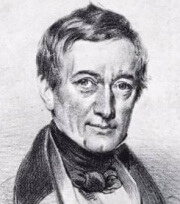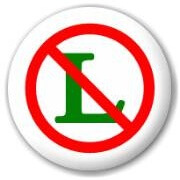January 18 is Thesaurus Day
Today is Thesaurus Day. It celebrates the birthday on January 18, 1779, of Peter Roget, who published his Thesaurus of English Words and Phrases in 1852, at the age of 72.
 According to Joshua Kendall’s biography, The Man Who Made Lists, Roget was compelled from an early age to create lists and tally objects to bring order to a chaotic childhood filled with mentally ill family members, including an uncle who cut his own throat and died in Roget’s arms.
According to Joshua Kendall’s biography, The Man Who Made Lists, Roget was compelled from an early age to create lists and tally objects to bring order to a chaotic childhood filled with mentally ill family members, including an uncle who cut his own throat and died in Roget’s arms.
Roget’s obsessions followed him into adulthood. He found that counting things gave him comfort and noted, ” I every day go up at least 320 steps.” He marveled at his ability to control the movement of his own irises.
He found Paris filthy but admired the precision of Napoleon’s military parades. Later, as a doctor in his native England, he helped introduce lifesaving public health policy in Manchester. The city’s squalor drove him to spend his evenings composing the synonymic word lists that would eventually make up the Thesaurus.
He never intended it as a book of synonyms: he felt there was “really no such thing” because of the unique meaning of every word. Instead, it was an elaborate system of 1,000 lists meant to spur readers to higher levels of scholarship. The index he added, almost as an afterthought, is the only part that most people use. He continued to revise and update it until his death at the age of 90.
To honor Thesaurus Day, we consulted it for a synonym for “synonym.” We found “analogue,” “equivalent” and the obviously trying-too-hard “metonym.”
What about synonyms for “thesaurus?” Along with “glossary” and “lexicon,” we found less worthy terms such as “sourcebook” and “reference book.” Our favorite? “Onomasticon.” Try to sneak that into a sentence today and have a happy Thesaurus Day!
![]()









Leave a Reply
Want to join the discussion?Feel free to contribute!